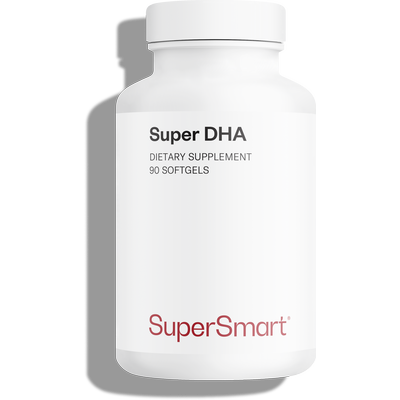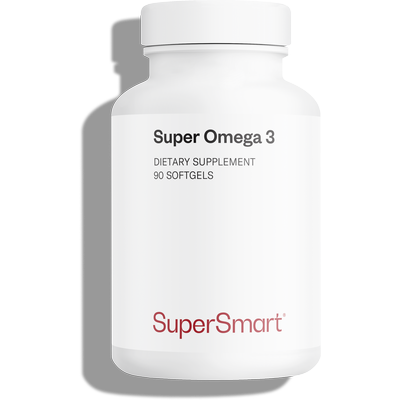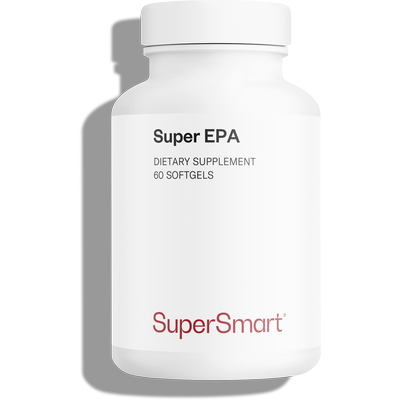27-02-2017
Omega-3 supplementation: what are the benefits for cognitive function?
 As we grow older, elements of our cognitive function such as memory, perception and concentration decline to varying degrees, as a normal consequence of the ageing process. This decline in mental capacity can sometimes lead to the onset of dementia, characterised by a range of brain diseases. A number of studies are therefore underway to try and combat such deficiencies and improve the everyday lives of those affected by cognitive problems. Among the potential approaches suggested by scientists, omega-3 supplementation represents an interesting option for preventing mild cognitive deficiency. First advanced several years ago, this theory has just received further support with the recent publication of new findings in the scientific journal Nutrients1.
As we grow older, elements of our cognitive function such as memory, perception and concentration decline to varying degrees, as a normal consequence of the ageing process. This decline in mental capacity can sometimes lead to the onset of dementia, characterised by a range of brain diseases. A number of studies are therefore underway to try and combat such deficiencies and improve the everyday lives of those affected by cognitive problems. Among the potential approaches suggested by scientists, omega-3 supplementation represents an interesting option for preventing mild cognitive deficiency. First advanced several years ago, this theory has just received further support with the recent publication of new findings in the scientific journal Nutrients1.
Growing interest in the preventive potential of omega-3 supplementation
Alongside the progressive increase in life expectancy, health authorities have reported a rise in the prevalence of cognitive deficiency. Mild cognitive impairment is estimated to affect up to 42% of the world’s population. Given this alarming figure, researchers across the globe are unsurprisingly working away to try and find effective solutions to this problem. As with various other diseases, scientists believe that many cases of dementia could be prevented. Several therapeutic approaches have been discussed of which supplementation with omega-3 is often at the forefront due to the many studies conducted on these fatty acids. They are known to play a central role in neurological function but may also have a protective effect against cognitive decline, a hypothesis that Chinese researchers have recently put to the test.
Positive results in improving cognitive function
Their study set out to evaluate the effects of omega-3 supplementation on a group of over-60s suffering from mild cognitive impairment. Of the 86 patients involved, 44 were given omega-3 supplements, and 42 a placebo containing olive oil. Using various Basic Cognitive Aptitude Tests (BCATs), the researchers were able to assess changes in cognitive function. In the omega-3 supplemented patients, improvements were observed in total BCAT scores, perceptual speed, space imagery efficiency, and working memory, with slightly greater improvements in men than women. Nevertheless, the results showed significantly improved cognitive function in all the omega-3-supplemented subjects compared with the placebo group. While further studies are needed in order to confirm these findings, the study provides new scientific evidence of the therapeutic potential of omega-3.
Once again, we have encouraging new results relating to omega-3 fatty acids. One way to take advantage of their health benefits is to eat foods such as oily fish; another is to take a dietary supplement, formulated to deliver optimal levels of certain omega-3s, the best-known being docosahexaenoic acid (DHA) and eicosapentaenoic acid (EPA) ). A product called Super Omega 3, which is enriched with EPA and DHA, is also available from the Supersmart catalogue.
> Source :
1. Yacong Bo et al., The n-3 Polyunsaturated Fatty Acids Supplementation Improved the Cognitive Function in the Chinese Elderly with Mild Cognitive Impairment: A Double-Blind Randomized Controlled Trial, Nutrients 2017, 9(1), 54.
Order the nutrients mentioned in this article
Further reading
28-08-2019
Though many people are not aware of choline, it is actually recognised as an essential nutrient by the prestigious US National Academy of Medicine 1...
Read more10-10-2016
In India, turmeric is used to treat a wide variety of ailments including gastrointestinal problems, inflammation, headaches, infections and colds. It is turmeric’s curcuminoid content,...
Read more28-06-2017
As the control centre of the central nervous system, the brain has to deal with a constant flow of data, processing millions of bytes of...
Read more© 1997-2025 Fondation pour le Libre Choix
All rights reserved
All rights reserved
Free
Thank you for visiting our site. Before you go
REGISTER WITHClub SuperSmart
And take advantage
of exclusive benefits:
of exclusive benefits:
- Free: our weekly science-based newsletter "Nutranews"
- Special offers for club members only




















